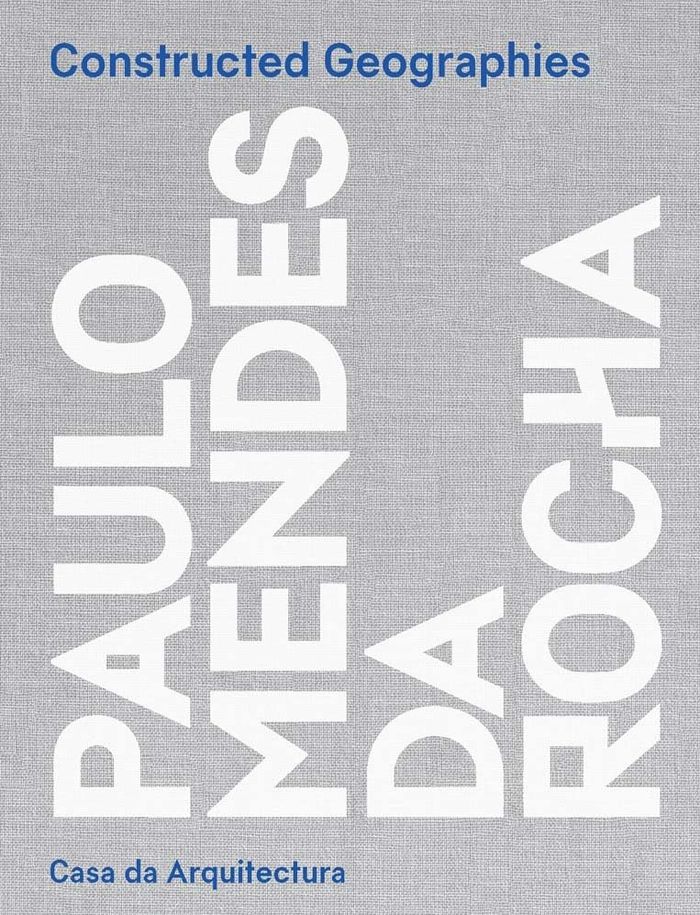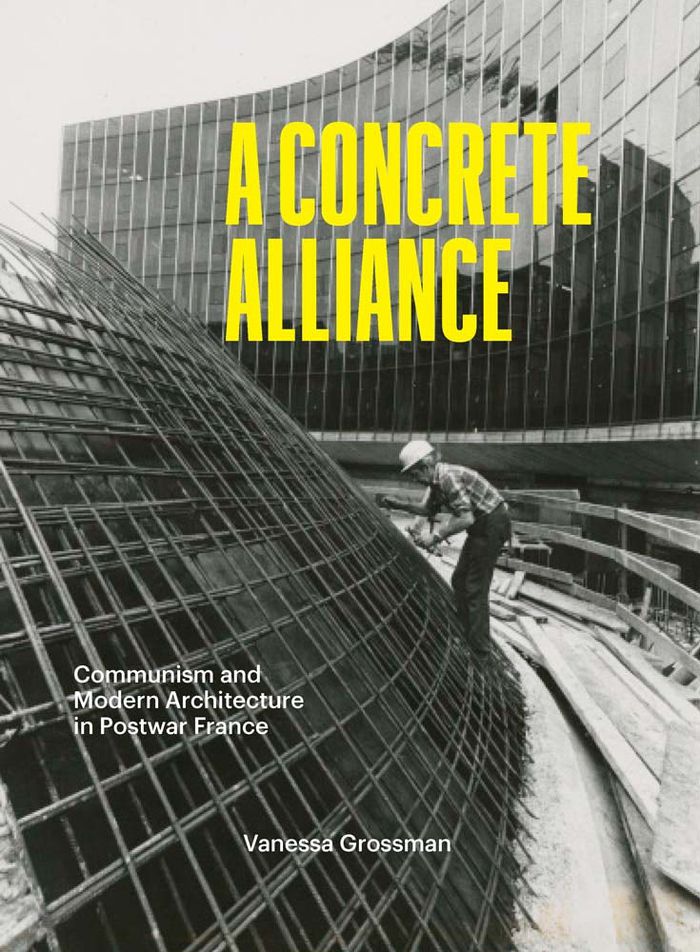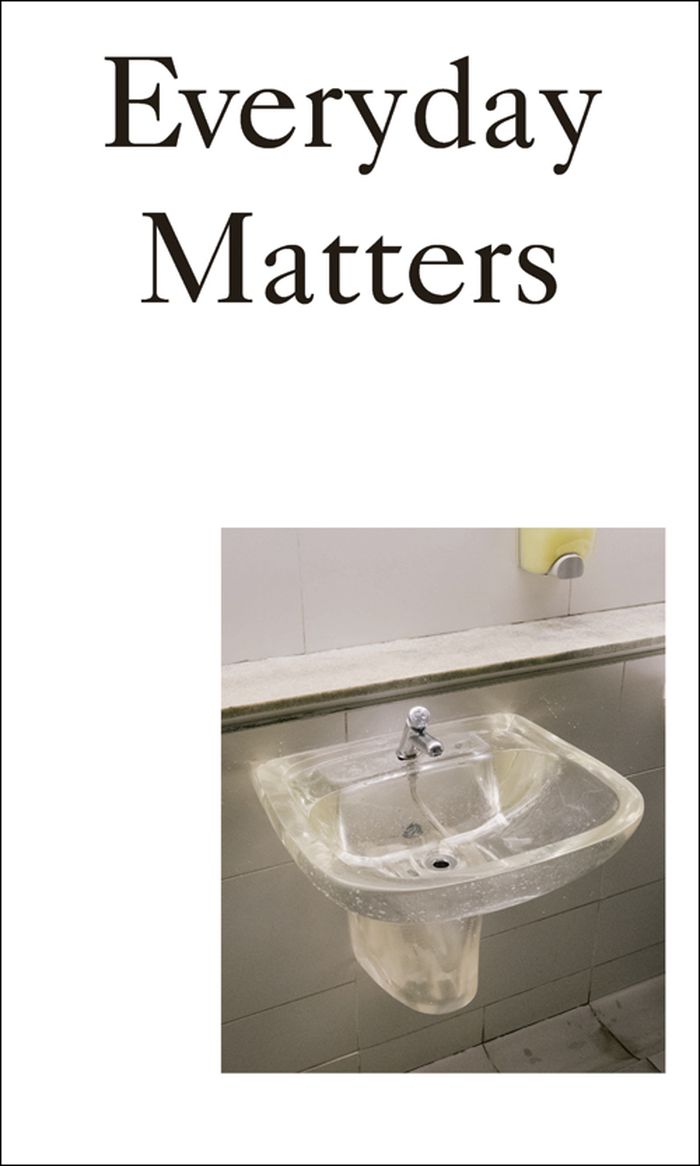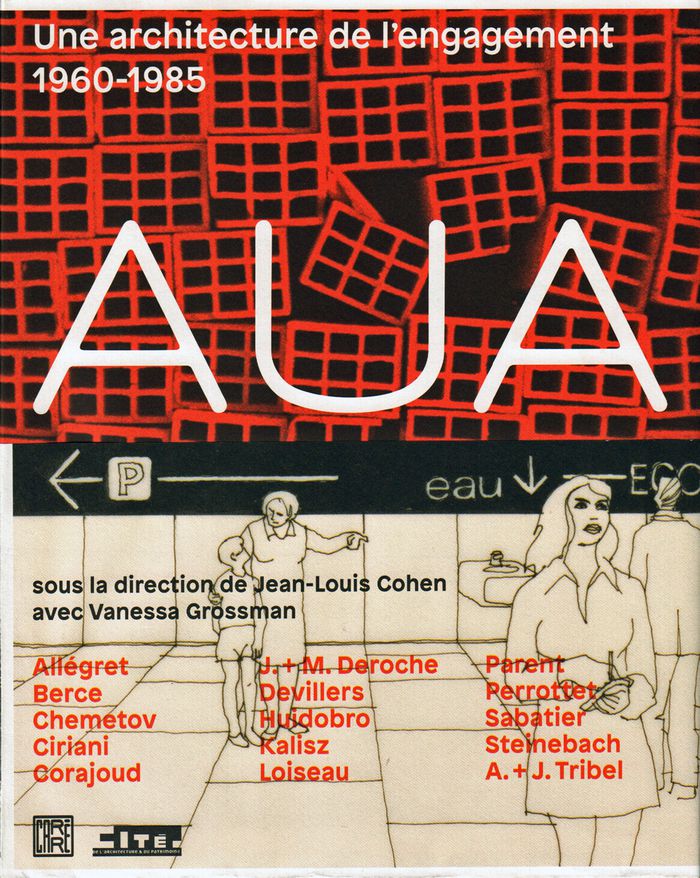$90.00
(disponible en magasin)
Résumé:
One of the most acclaimed architects working in Brazil since the mid-twentieth century, Paulo Mendes da Rocha (1928–2021) began building in the 1950s, championing an approach often associated with "Brutalism" but expanding well beyond it. This retrospective catalogue is the first major publication on Mendes da Rocha since the establishment of his archive at the Casa da(...)
Architecture, monographies
novembre 2024
Constructed geographies: Paulo Mendes da Rocha
Actions:
Prix:
$90.00
(disponible en magasin)
Résumé:
One of the most acclaimed architects working in Brazil since the mid-twentieth century, Paulo Mendes da Rocha (1928–2021) began building in the 1950s, championing an approach often associated with "Brutalism" but expanding well beyond it. This retrospective catalogue is the first major publication on Mendes da Rocha since the establishment of his archive at the Casa da Arquitectura in 2021. A team of international scholars provides a comprehensive view of the architect’s trajectory and the collective dimension of his work, along with thematic essays. Mendes da Rocha’s identity as a South American architect interested in the geographic relation between nature and culture is underlined. The book’s contributors explore his concern with the social and anthropogenic impact of the continent’s development, as well as its colonial past and postcolonial future.
Architecture, monographies
$94.00
(disponible sur commande)
Résumé:
The massive reshaping of French cities that took place between 1958 and 1981 is commonly regarded as a unique episode in which modernist ideals were tested on an unprecedented scale. Yet the history of postwar French modernism has never fully accounted for the influence of one of architecture’s most important institutional patrons, the French Communist Party (PCF).(...)
A concrete alliance: Communism and modern architecture in postwar France
Actions:
Prix:
$94.00
(disponible sur commande)
Résumé:
The massive reshaping of French cities that took place between 1958 and 1981 is commonly regarded as a unique episode in which modernist ideals were tested on an unprecedented scale. Yet the history of postwar French modernism has never fully accounted for the influence of one of architecture’s most important institutional patrons, the French Communist Party (PCF). Drawing political theory and architectural history into conversation, Vanessa Grossman probes the shifting but enduring alliance between modern architecture and the PCF in the aftermath of the political crisis of 1958, prompted by the Algerian War of Independence and Charles de Gaulle’s rise to power.
Modernisme
$48.95
(disponible sur commande)
Résumé:
Architects and urban planners have long oscillated between powerlessness and megalomania, seeking to design habitats, civilisations, and even the entire planet. But in the current climate of geopolitical uncertainty, occurring against the backdrop of unprecedented environmental change, design professionals acknowledge once again the vulnerability of their field. This book(...)
Everyday matters: contemporary approaches to architecture
Actions:
Prix:
$48.95
(disponible sur commande)
Résumé:
Architects and urban planners have long oscillated between powerlessness and megalomania, seeking to design habitats, civilisations, and even the entire planet. But in the current climate of geopolitical uncertainty, occurring against the backdrop of unprecedented environmental change, design professionals acknowledge once again the vulnerability of their field. This book shows how architects have shifted their focus to the realm of the quotidian as they are confronted with the challenges of an uncertain future.
Architecture contemporaine
$69.95
(disponible en magasin)
Résumé:
Rassemblant plusieurs générations de concepteurs aux origines disciplinaires et géographiques très diverses, l’AUA a développé son activité pendant 25 ans dans une France saisie par la modernisation et en proie à une activité politique intense – de la guerre d’Algérie finissante au premier mandat de François Mitterrand. En quelque sorte banni des grands centres urbains,(...)
Architecture contemporaine
novembre 2015
AUA: une architecture de l'engagement, 1960-1985
Actions:
Prix:
$69.95
(disponible en magasin)
Résumé:
Rassemblant plusieurs générations de concepteurs aux origines disciplinaires et géographiques très diverses, l’AUA a développé son activité pendant 25 ans dans une France saisie par la modernisation et en proie à une activité politique intense – de la guerre d’Algérie finissante au premier mandat de François Mitterrand. En quelque sorte banni des grands centres urbains, il a opéré dans les territoires de banlieue et dans les premières villes nouvelles, dans un jeu permanent entre les initiatives des collectivités locales et les programme de l’État. L’engagement, défini par une participation active à l’histoire, marque l’ensemble des actions de l’AUA, qui n’a jamais dissocié la réponse aux attentes des élus et des militants de ses objectifs architecturaux. Cette démarche traverse tous les domaines dans lesquels l’Atelier a déployé son action ; l’habitation et les équipements publics ; l’urbanisme des tissus de banlieue et un souci pionnier du paysage ; la confrontation avec les techniques d’industrialisation et les modèles innovants. L’AUA a par ailleurs été parmi les pionniers d’un nouvel exercice professionnel fondé sur la coopération, le dialogue et le partage, qui a fait figure d’exemple et dont l’esprit pionnier et fécond est lisible dans les projets conduits par une nouvelle génération d’architectes issus de l’enseignement d’après 1968. La diversité des écritures architecturales (Jacques Kalisz, Henri Ciriani, Paul Chemetov, etc.) s’accompagne d’une adhésion partagée à un ensemble de principes, comme la fidélité aux idées du mouvement moderne, une réflexion persistante sur le travail d’équipe avec le souci de la pluridisciplinarité et l’attachement à la dimension sociale de l’architecture.
Architecture contemporaine



